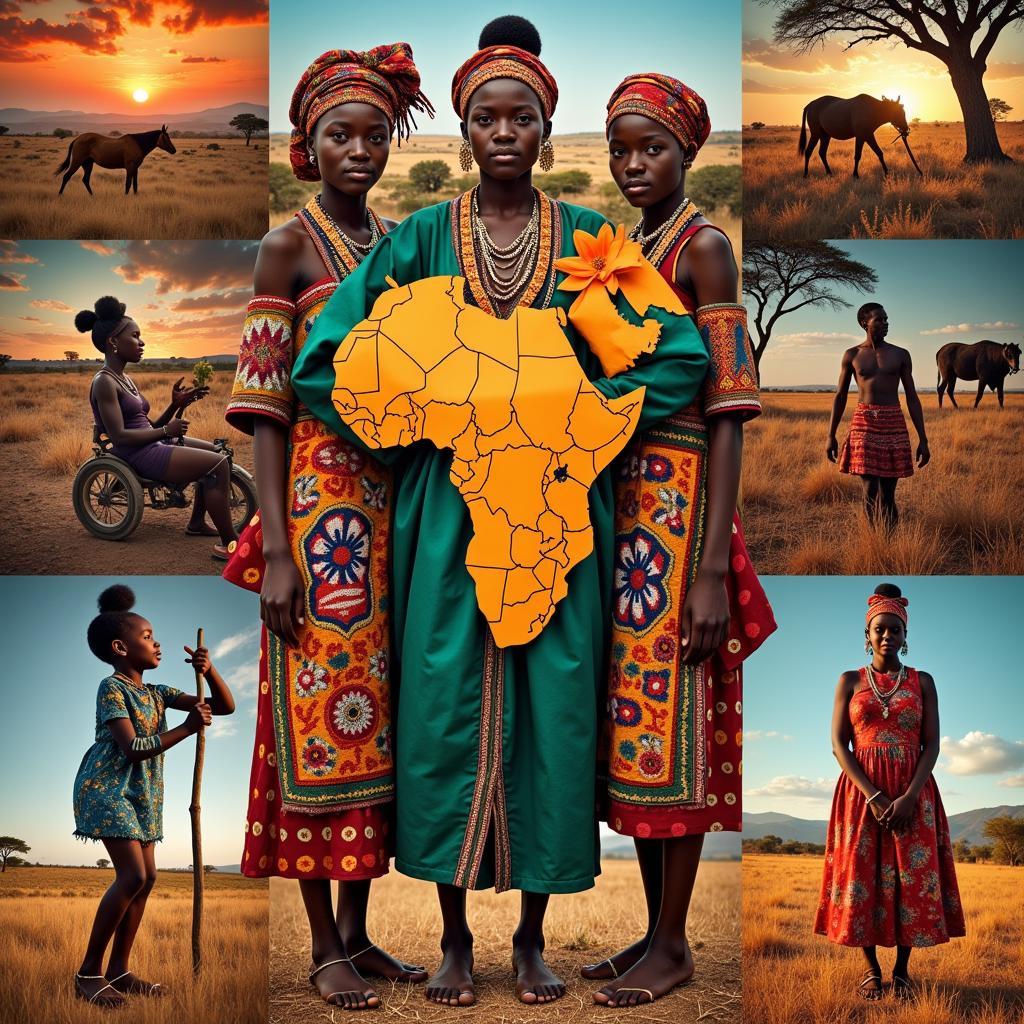Discovering Authentic African Dolls in Cape Town
Cape Town, a vibrant hub of South African culture, offers a treasure trove of authentic African dolls. These aren’t just toys; they’re intricate expressions of heritage, artistry, and storytelling. From traditional Ndebele dolls with their beaded finery to Xhosa dolls adorned in symbolic attire, exploring these handcrafted treasures offers a unique glimpse into the diverse cultures of South Africa and beyond.
Unveiling the Cultural Significance of African Dolls
African dolls hold deep cultural significance, far beyond their role as playthings. They represent ancestral connections, embody spiritual beliefs, and transmit cultural values across generations. These dolls aren’t merely decorative; they serve as powerful symbols of identity and heritage, connecting individuals to their roots and preserving cultural memory. For example, dolls crafted by the Zulu people often feature intricate beadwork that reflects their rich artistic traditions and social status.
Where to Find African Dolls in Cape Town
Finding these treasures is part of the adventure. Cape Town’s bustling markets, such as the Greenmarket Square and the Old Biscuit Mill, overflow with handcrafted dolls, each telling a unique story. These markets provide a vibrant setting to connect with local artisans and learn about the cultural context of their creations. Beyond markets, specialty craft shops and art galleries offer a curated selection of dolls, showcasing both traditional and contemporary designs. Many community tourism initiatives also offer opportunities to visit local craftspeople in their workshops, providing an intimate glimpse into the doll-making process.
Exploring Different Types of African Dolls
The diversity of African dolls reflects the continent’s rich tapestry of cultures. Ndebele dolls, known for their vibrant beaded attire, showcase the intricate craftsmanship and bold aesthetics of the Ndebele people. about african craft Xhosa dolls, dressed in traditional ochre-colored clothing and elaborate beadwork, embody the cultural identity of the Xhosa community. Each tribe and region boasts unique doll-making traditions, using diverse materials like wood, clay, cloth, and beads. These variations in style and material reflect not only aesthetic preferences but also the availability of resources and the cultural narratives embedded within each doll.
Understanding the Craftsmanship Behind African Dolls
The creation of African dolls is a skilled art form passed down through generations. Artisans meticulously craft each doll, imbuing it with cultural meaning and artistic expression. 1960s african american fashion From carving wooden figures to meticulously beading intricate designs, every step reflects a deep respect for tradition and a commitment to preserving cultural heritage. “The making of a doll is not just about creating an object, it’s about weaving a story,” explains Nomusa Zulu, a renowned doll maker from KwaZulu-Natal.
What are the price ranges for African Dolls in Cape Town?
Prices for African dolls in Cape Town vary widely depending on the size, materials, intricacy of the design, and the artist’s reputation. Simple dolls can be found for as little as a few dollars, while elaborate, handcrafted pieces by renowned artists can fetch hundreds or even thousands.
“Investing in an authentic African doll is investing in a piece of art and a piece of history,” says Themba Ngcobo, a cultural heritage expert.
African Dolls: More Than Just Souvenirs
While African dolls make beautiful souvenirs, they are much more than that. They offer a tangible connection to the diverse cultures of Africa, providing a glimpse into the rich traditions, artistic skills, and spiritual beliefs of various communities. By appreciating the craftsmanship and cultural significance of these dolls, we can deepen our understanding and appreciation of African heritage.
In conclusion, discovering authentic African dolls in Cape Town is a rewarding experience. These handcrafted treasures offer a unique window into the vibrant cultures of South Africa and beyond, reminding us of the power of art to connect us to our shared human heritage. Explore the markets, engage with the artisans, and bring home a piece of African culture that resonates with you.
FAQ:
- What are the most common materials used to make African dolls? Common materials include wood, clay, cloth, beads, and natural fibers.
- Where can I buy authentic African dolls in Cape Town? Check out Greenmarket Square, the Old Biscuit Mill, and local craft shops.
- Are African dolls expensive? Prices vary depending on size, materials, and craftsmanship.
- What is the cultural significance of African dolls? They represent ancestral connections, spiritual beliefs, and cultural values.
- Do African dolls make good gifts? Absolutely! They are unique and meaningful souvenirs.
- How can I tell if an African doll is authentic? Look for handcrafted details and inquire about the doll’s origin and maker.
- Are there any ethical considerations when buying African dolls? Support fair trade practices and ensure artisans are compensated fairly.
Other questions you might have:
- What are some other traditional African crafts?
- Where can I learn more about African culture in Cape Town?
- What are some other souvenirs I can buy in Cape Town?
For any assistance, please contact us: Phone: +255768904061, Email: kaka.mag@gmail.com Or visit us at: Mbarali DC Mawindi, Kangaga, Tanzania. We have a 24/7 customer support team.

